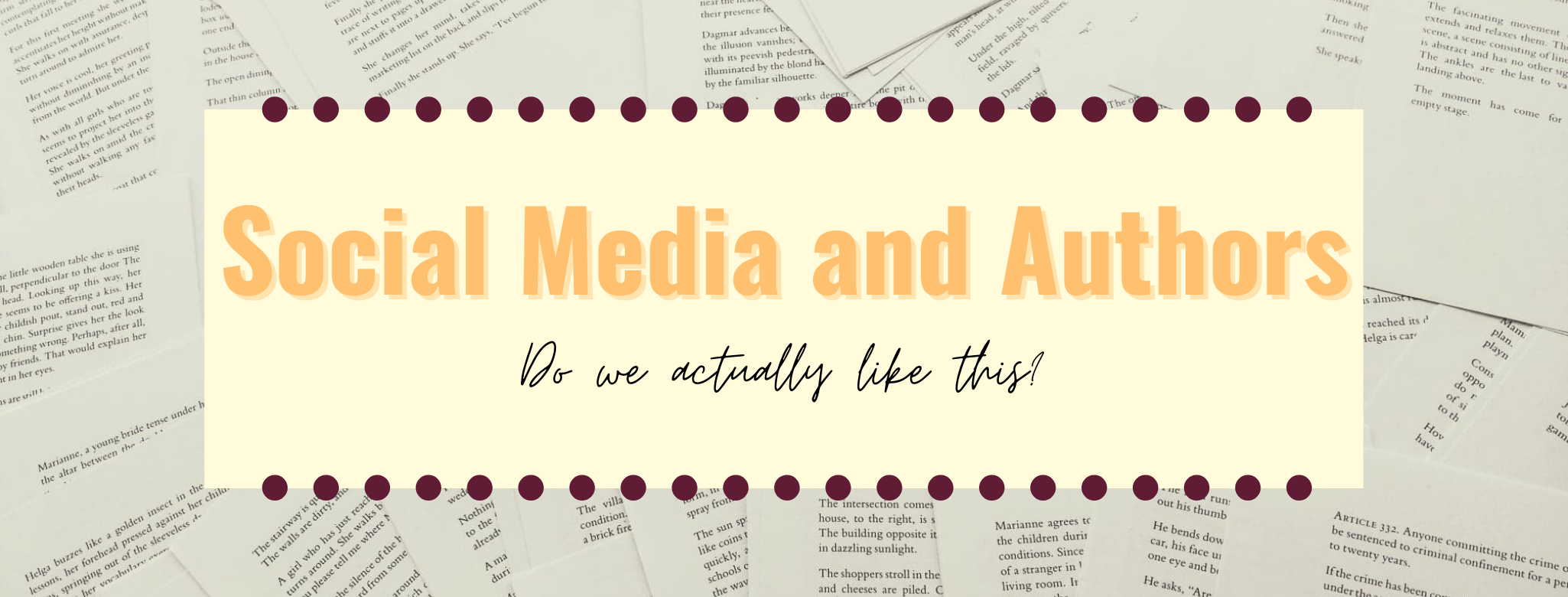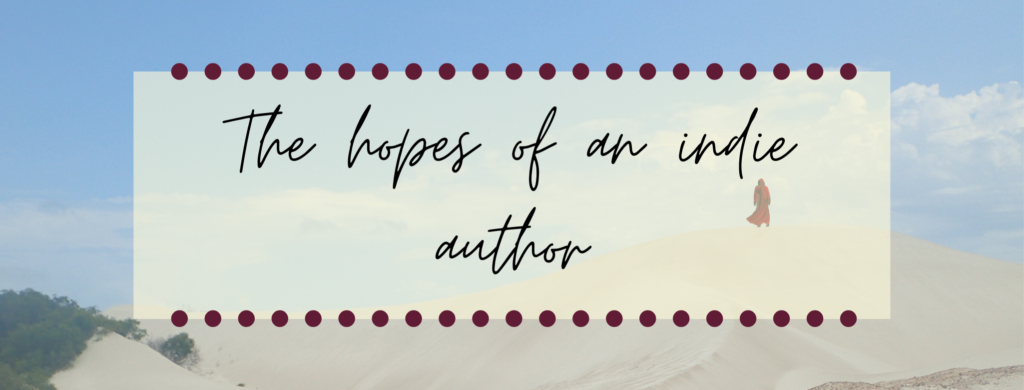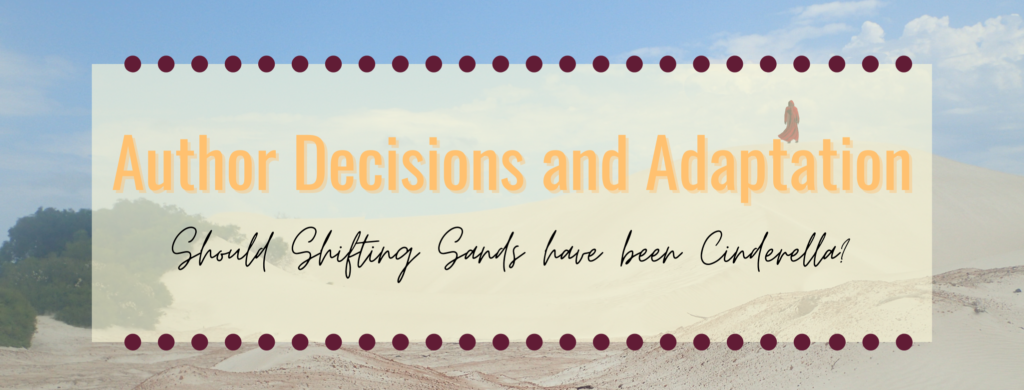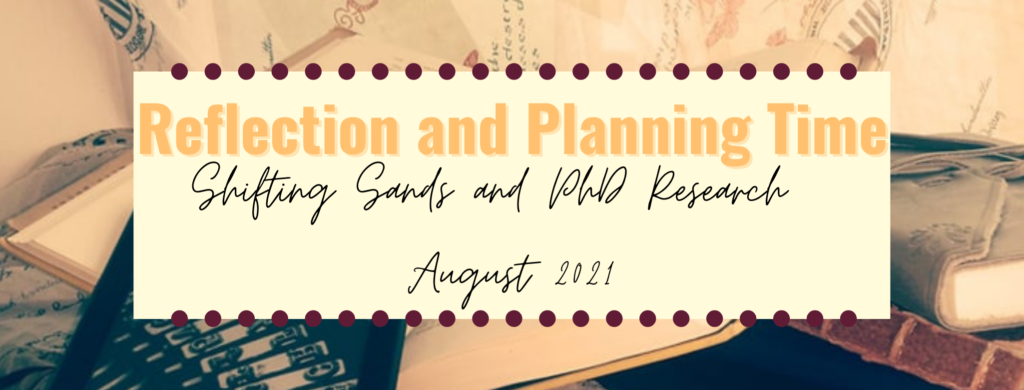Hi everyone, how’s it going? I’m having one of those semi-overwhelming weeks where many big things are coming together at once – I’m moving at the end of the week, I’m going away (also at the end of the week), my PhD annual review is immediately after I’m back, have a conference paper to pre-record the next day, and a chapter to write by the end of June. Oh, and most importantly, the next wave of Shifting Sands should be going up on the 17th! I need to sort all my files and the newsletter for that. It’s all quite intense, but I’m enjoying this chapter/conference prepping. I’m suddenly finding a burst of articles looking at author behaviours on social media and it’s super exciting. A really interesting finding so far? Author’s don’t like marketing themselves online. So, let’s talk about social media and authors.
Authors and Social Media: The Hate
I’ve written previously about some of the strains related to crafting an online author identity, touching slightly on this video about author branding by Alexa Donne. In this, she talks about some of the strains of creating an author platform and whether it’s worth it. A social media presence has become an industry expectation, but it’s time-consuming and won’t necessarily get you sales. As a reader, I’ll fully admit that I don’t tend to buy books when I see authors pitching them online. I might follow an author and be interested in them because of their tweets, but typically if I buy their books it’s because I would have anyway.
I’ve actually seen a few posts about not liking marketing on social media lately. It’s a topic that regularly comes up on Twitter within the #WritingCommunity. Alexa Donne’s video also isn’t the only one talking about this. But unexpectedly finding it explored academically was fun. In Laing’s 2017 article, the researcher surveyed authors to see what platforms they were using and how they were using them. Did social media help? Not really, no. The authors surveyed found a good community of other authors, but not much engagement with readers. Goldsmith, meanwhile, surveyed both authors and readers, finding that most authors felt pressured to engage on social media. Not having a platform is potentially detrimental. And the results from readers suggest that there is reason for wariness.
What’s so bad about social media for authors?
I think there are a couple of issues with our reliance on social media as authors. First, as Alexa Donne highlights, is the fact it takes time away from writing. I’m bad at posting sometimes, but even I check Twitter multiple times a day. One author from my content analysis tweeted an average of 35 times a day! But the returns, particularly for a smaller or self-published author, aren’t always worth it. It feels a lot like screaming into the void. And that void doesn’t always include readers; as Laing found, the community growing from an authors social media presence is typically made up of other authors. An author community is great, but it doesn’t make sales. All that work, without generating readers. And, not gonna lie, it feels like publishers are sometimes relying on this so that they can put less work in.
But, beyond the effort, there is another problem with social media for authors. Social media often means presenting one version of ourselves to many audiences. And if those different audiences have varied views… Goldsmith found that while only 45% of readers had chosen to buy a book because of an author’s personality, 57% of respondents had chosen not to buy an author’s book because of their behaviour. And the more time we spend online, the more behaviour there is to see (*cough* JKR *cough*). Similarly, 55% of respondents had chosen not to buy a book because of an author’s political beliefs. So, social media pro-tip: authors are expected to show their “real” self online, but, despite being a key part of someone’s identity, political beliefs are maybe something to avoid.
How did we get here?
I guess that’s the big question: how did it become so important for authors to have a social media presence? I’m developing a theory that it grew out of the 2000s-2010s boom of celebrities like Paris Hilton letting us into their lives. We saw their backstage selves, investing in the minutia of their lives. Then social media attacked arrived. Celebrities don’t need to bring cameras in – if they’re on social media, we can find out who they are. We see how they think. The early 2000s was a big time for the celebrity author and those like JKR crafted a presence that seemed to invite us in. Come, friend, have a cup of tea. When she eventually started social media, it just seemed like a natural extension of the persona she had crafted. Except we saw everything. And we know how that went.
An author being online is beneficial to the reader. It’s another place for a fandom to congregate, to keep up with news, and feel like an insider. My younger self would have loved the “exclusive” input. Give me more info about the story I love! And I think being that hub for those who love your writing is important. Better to be part of the community than to seem like a distant unloving figure. But social media and authors? It’s a risky business and we all need to remember that we’re playing to multiple audiences at once online. Whether it’s ultimately worth it or not, I’m unsure. I’d love to hear what you think!



